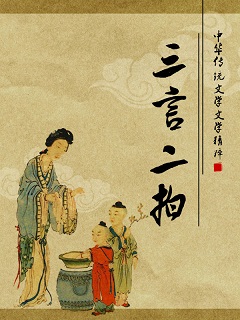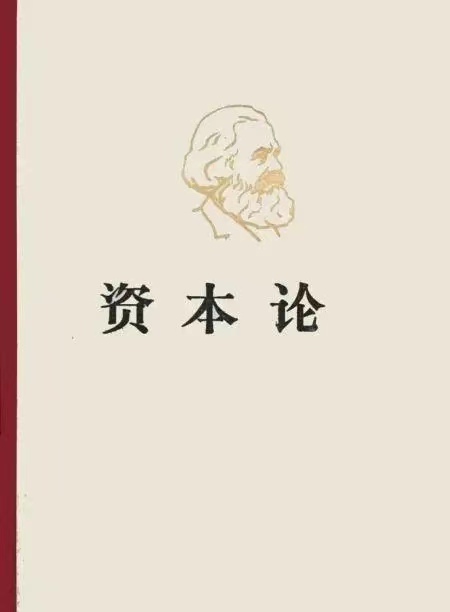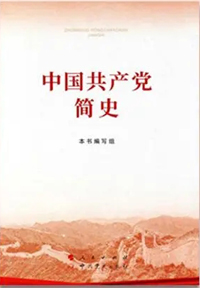SEÑORA PATROCINIO seated herself at the table. She was a thin, lean old woman, with a yellow complexion1, a hooked nose which was on friendly terms with her chin, grey hair, and a wrinkled skin.
Don Gil took a drink, and continued as follows:
The store was located in a large, antique house, painted blue. On the ground floor were four grated windows, a door, and two little shops. One of these was a mat store, and the other was the one El Pende had rented.
It was a tiny apartment, scarcely three metres square, with a few living-rooms beyond a dark back room.
El Pende put neither signs nor decorations on his shop; he placed a counter painted with red ochre in the middle of the floor, set up a few pine shelves, and commenced business.
All kinds of things to eat and to drink and to burn were sold at the store; a heterogeneous2 assortment3 was heaped upon the shelves; there were soaps, silks, taffy of all kinds, and dyes from the most distinguished4 factory in the whole world, which is that of the Calle de Mucho Trigo; there were hemp-seeds roasted in honey, candied pine-nuts, almond paste, and those thin little wafers that you must have seen, that look like priests’ hats.
“Come, don’t get tiresome,” said Señora Patrocinio.
“If you interrupt me, Sister Patrocinio, I shall refuse to go on,” answered the narrator.
“You are losing the thread of your story. Come to the point, Don Gil, come to the point.”
“Very well, then—I refuse to continue.”
“Go on, man, go on; you’re crankier than a wheat-sifter,” said the old woman.
“Where was I?” murmured Don Gil. “I believe I’ve forgotten.”
“You were telling us what the store contained,” suggested Quentin.
Of drinkables (the archæologist continued), there were all sorts of brandies and refreshing5 beverages6; rossolis, which they call ressolis here; Cazalla, and wild cherry brandy in green jars which some call parrots, and others greenfinches.
The little store in the Calle de la Zapatería soon had customers. Country folk used to go there to take a little nip in the morning; a few servant girls and a great many children used to stop there to buy sweets.
El Pende stayed behind the counter where he received his friends, who sometimes spent a little money. The most assiduous in his attendance at these gatherings7, was a ruined hidalgo by the name of Palomares, whom El Pende had known since childhood, and who, having nothing to do, used to take refuge in the shop. In order not to be in the way, and at the same time to make himself useful, he used to wait on customers himself.
This hidalgo, Diego Palomares, was an adventurer, a[116] son of Lucena. He had departed from his home town for the first time when he was eighteen years old, to attend the Seville Fair. He lost all his money and his desire to return to his native city, by gambling8, and acquired, in exchange, a desire to see the world; so he went to Cadiz and embarked9 for America. There he had his ups and downs successively: he was a merchant, a super-cargo on a ship, and after many years of hard and fatiguing10 work, he returned to Cordova, thirty-six years old, penniless, and prematurely11 aged12.
When Diego Palomares saw that his friend was getting on well with the store, he joined him.
While El Pende sat at the counter tending the store, Fuensanta continued to help the silversmith.
Six months after the first gift, the old Marquis sent for Fuensanta and gave her another hundred dollars.
From the wife’s hands they passed into those of her husband, who used them all in the store.
El Pende asked the landlord to give him another room, and to remove one of the grated windows, that he might enlarge his store. His request was granted, and in place of the grating, they installed a show-window.
Then El Pende had a sign painted, and hanging from the board, a gilt13, many-pointed star.
How many arguments he and Palomares had as to whether the star was right or not!
I remember that one day, when I was on my way to the Casino, they called me in to elucidate14 the question for them; and you ought to have heard me give them a talk about office-signs of all kinds! It is a matter to which few people pay any attention.
[117]
“Come, there you go again, wandering away from your subject,” said the old woman.
“Be quiet,” Don Gil ejaculated. “This matter of signs is very interesting; don’t you think so?” he asked Quentin.
“I don’t know anything about it.”
“Oh, don’t you? Well, for example, some night you may see a closed store with a sign which reads ‘Perez,’ with two red hands hanging from the board. What kind of business do those red hands indicate?”
“A glove store, perhaps?” asked Quentin.
“That’s right. How clever the lad is! What does a basin indicate?”
“That’s well known—a barber shop.”
“And a rooster on top of a ball?”
“That I don’t know.”
“Why, a poultry15 shop. And a red or blue ball in a show-case?”
“A drug store.”
“Very good. And a little tiny mattress16?”
“A mattress-maker’s store.”
“And one or two black hands holding a bunch of keys?”
“I think I have seen that in front of locksmiths’ shops.”
“That’s right. And a large book?”
“A bindery.”
“But what a clever chap he is! And large eyeglasses—very large?”
“An optician’s.”
“And the bust17 of a woman leaning from a balcony as though taking the air?”
“I don’t know.[118]”
“A ladies’ hair-dressing salon18: but they don’t have as many here as they do in Madrid. And a horse-shoe?”
“You’re the one that ought to be horse-shoed,” ejaculated Señora Patrocinio. “Are you going on with the story or not, Don Gil?”
“But you two are confusing me! You make me lose the thread. Where was I?”
“You were telling us,” said Señora Patrocinio, “about how they fixed19 up the store with the Marquis’ money.”
“Ah! That’s so.”
They widened the store; left off several articles that were not very productive, and devoted20 themselves exclusively to selling comestibles. They bought casks of Montillo wine, Montero oil, sugar, coffee, and hired some chocolate makers21 to make chocolate.
Palomares, whom El Pende had engaged as a clerk when he saw the prosperity of the establishment, spent the day wrapping up cakes of chocolate, toasting coffee, and mixing peanuts and chicory.
Palomares had a great talent for labelling his mixtures. When he had faked up something, he called it “Extra-Superior”; if the fake was so complete that one could not tell what kind of a product it was, then he called it “Superior” or “Fine.”
Besides these hyperbolical names, there were other more modest ones, such as “First Class,” “Second Class,” and “Third Class.” These divisions were hard to define; yet Palomares asserted, not that they were good, but that one could easily distinguish a difference between them.[119]
According to him, it was clear that the “Second Class” was worse than the “First Class,” and that the “Third Class” was worse than the “Second Class”; but this was not saying that the “First Class” and the “Second Class” were good, or even passably so.
In spite of the chemistry that El Pende and his assistant employed, the store grew in reputation. The show-window was full of sausages wrapped in tinfoil22, prunes23, and tins of preserves. On the shelves were loaves of sugar, bottles of sherry, and jugs24 of gin. Upon the floor in sacks, were rice, kidney-beans, and casks of sardines25.
Money began to flow into the store in such a quiet and unobtrusive manner that no one was aware of it. The old silversmith grumbled26 at the thought that some fine day they would leave him; but Fuensanta deceived him by telling him that the store was not getting along very well, and that they would get rid of it if they had a chance.
El Pende, who lacked the patience of his wife, wished to emancipate27 himself completely from the old man, so he rented the first floor of the house in which the store was located, giving the back room to Palomares.
Then Fuensanta hired a servant girl, and every minute she had free, she went to keep the old silversmith company. This procedure was very much praised by the old wives of the community, and Fuensanta enjoyed much popularity. At the same time, El Pende succeeded in making people forget his family nickname, and everybody called him Rafael, or Señor Rafael, and some even called him Don Rafael.
The family was progressing economically, and acquiring more respectability, when the lad Quentin began[120] to make trouble. He ran away from home; he stole; once he came near poisoning the whole family; he did terrible things.
Then the old Marquis, to whose knowledge his grandson’s escapades had come, had him brought before him and sent him away to school in England.
Quentin left, and the family continued their progress. Fuensanta had her fourth child, a daughter; and during the confinement28, Don Andrés Salvador, the silversmith, died from heart failure.
When they opened the old man’s will, they found that his fortune, almost in its entirety, with the exception of a few bequests29 to two distant relatives, was left to Fuensanta. The fortune, including the money and the house, amounted to somewhere near thirty thousand dollars.
Then Fuensanta and El Pende tried to rent the whole lower floor of the house on the Calle de la Zapatería, with the idea of converting it into a large warehouse30. The landlord was willing, but the man who rented the mat store said that he would not move, that he had a ten-year contract with the landlord, and that he did not intend to leave. They offered to pay him an indemnity31, but he persisted in his recalcitrant32 attitude.
And maybe the fool wasn’t stubborn! El Capita was a man of evil intent with a magnificent history. Some time ago he lived with a widow who had two daughters in school. When the elder daughter graduated, the man fell in love with her, and married her; though he continued his relations with her mother. El Capita was an artful chap. His wife found out about the affair, and was indignant. She ran away with her husband’s clerk out of revenge; but El Capita did not[121] worry about the matter. Along came the second daughter, and El Capita, who was very astute33, began to make advances to her, which she, more accommodating than her elder sister, willingly accepted.
El Capita was very content with his store; doubtless he had an affection for all those panniers and headstalls—mute witnesses of his drunken parties and tempestuous34 love affairs, and he got it into his head that he was not going to move. But the man reckoned without his hostess; and in this case, his hostess was Fuensanta, who when she said that she was going to do a thing, did it regardless of all obstacles.
Fuensanta very quietly transferred the inherited silversmith’s shop; then she sold the house in the Calle de Librerías, and with the money from the transfer and the sale, bought the house in the Calle de la Zapatería; and El Capita had to get out in a hurry, willy nilly, with all his pack-saddles and panniers.
Fuensanta and El Pende converted the whole lower floor into a warehouse. They furnished the barracks and the prison with goods at wholesale35; but as they did not wish to kill their retail36 trade, they rented a store in the Calle de la Espartería near the Arco Alto and the Calle de Gitanos. This place, which was known in ancient times by the name of El Gollizno on account of its extreme narrowness, is one of the busiest corners in Cordova. Certainly there . . . .
“Good lord! Another digression?” exclaimed Quentin. “Haven’t you finished yet?”
“Yes.”
“Tell us the rest,” said the old woman. “What happened to that El Pende fellow?[122]”
“Nothing: they elected him to the council, then they made him lieutenant-mayor, and now he is a wealthy merchant, a banker; and we who were rich once, haven’t a penny now. Eh? Well, that is the story. Come—pass me some more wine.”
Don Gil seized the bottle with one hand, brought it to his mouth, and began to drink.
“Enough, man, enough,” said Señora Patrocinio.
The archæologist paid no attention to her, and never stopped until he had emptied the bottle. Then he gazed about the room, shut his eyes, leaned his head upon the table, and an instant later, commenced to snore noisily.
“The compadre is rather intoxicated,” said Quentin as he looked at Don Gil.
“Come, you’re feeling pretty good yourself,” replied the old woman.
“I? I was never so calm in my life. It takes a lot to get us people from England drunk.”
“Ah! Are you English?”
“No; I come from here.”
“And are you a friend of the Quentin of whom there has been so much talk tonight?”
“Ha ... ha ... ha!”
“What are you laughing at?”
“Why, that Quentin ... is me!”
“You?” and she used the familiar tu.
“Ha ... ha! Now the old dame37 is beginning to ‘thee and thou’ me!”
“Is it you, Quentin?”
“Yes.”
“I am a relative of yours.”
“Really? I’m very glad to hear it.”
“I can’t explain anything to you now, because you[123] are drunk. Come some other day and we’ll talk it over. I’ll help you.”
“Very good; I shall take advantage of your protection.... Ha, ha!”
“You shall see. You won’t have to work.”
“Work! Ha ... ha ... ha! That is an idea that never occurred to me, good dame. Far from me is that vulgar thought.... Ah!... Ha ... ha ... ha!”
Señora Patrocinio seized Quentin by the arm and led him to the street.
“Now, go home,” she said to him; “some other day I shall tell you something that may interest you. Should you need money, come here before you go anywhere else.”
This said, she pushed Quentin into the middle of the street. The coolness of the night air cleared his head. Day had not yet dawned; the sky was clean and cloudless; the moon was low in the heavens—just touching38 the horizon.






